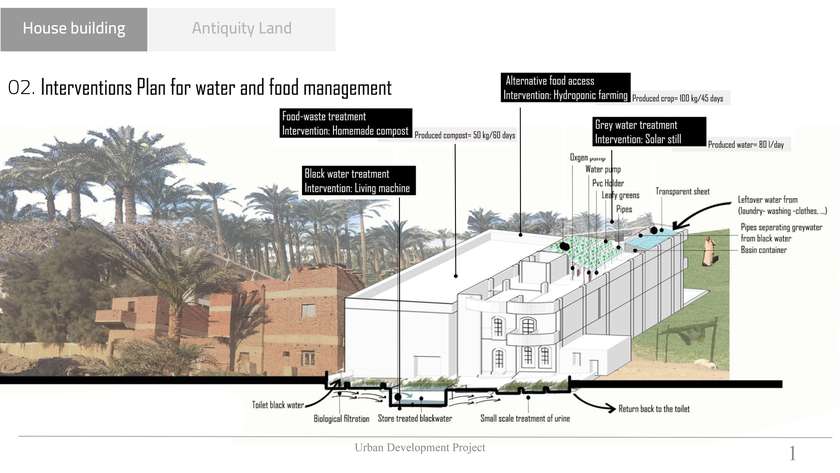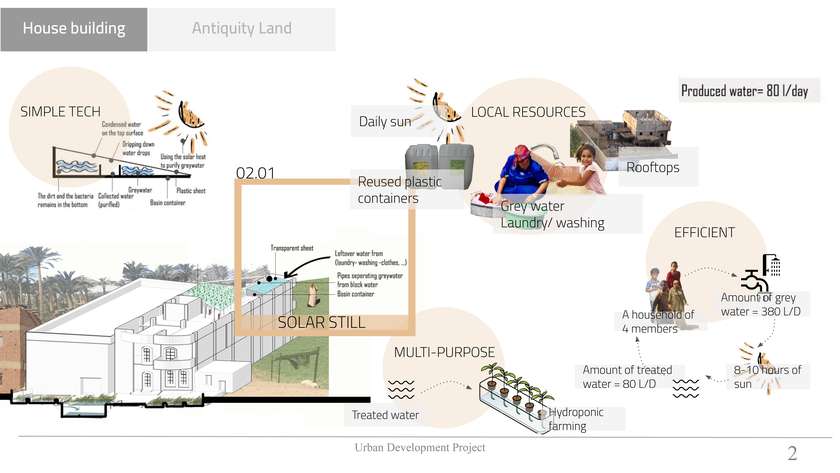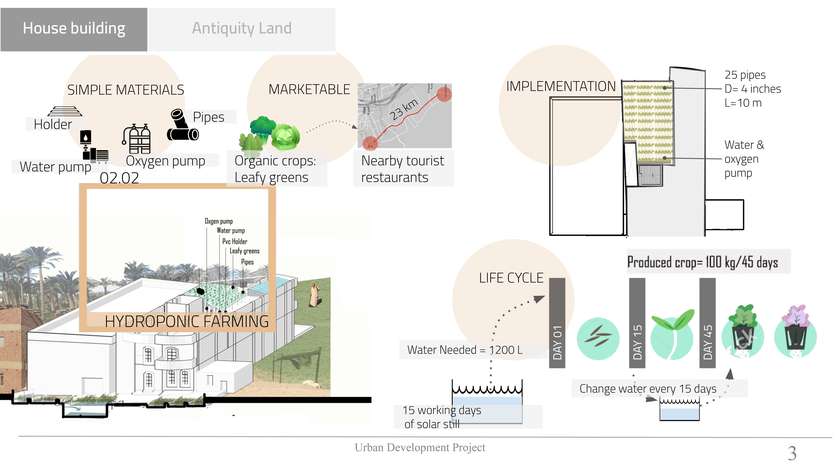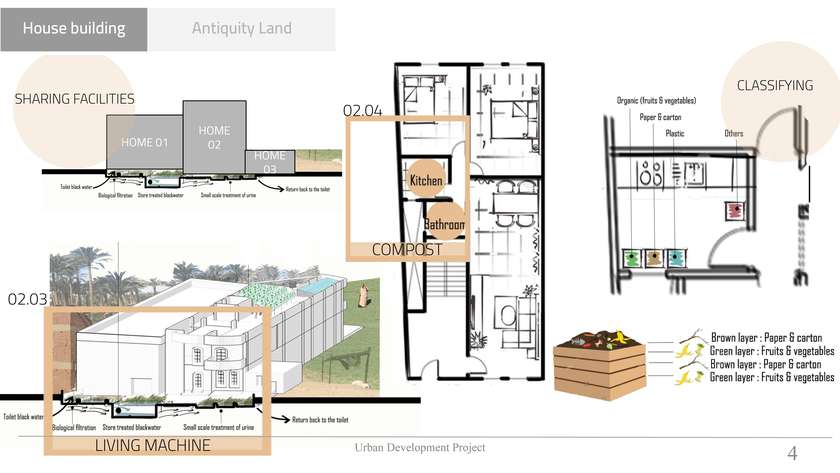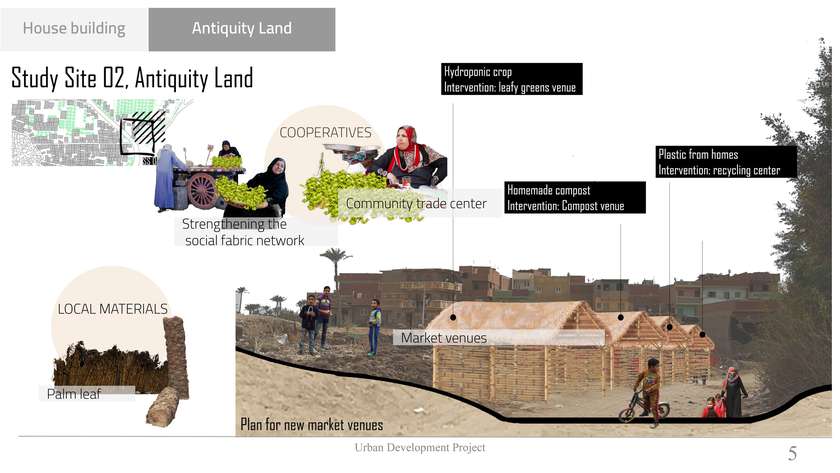Idea by
Reem Cherif Fawzi
Call for ideas 2020
Met-Rahineh: Re-framing the scene
Met-Rahineh: Re-framing the scene
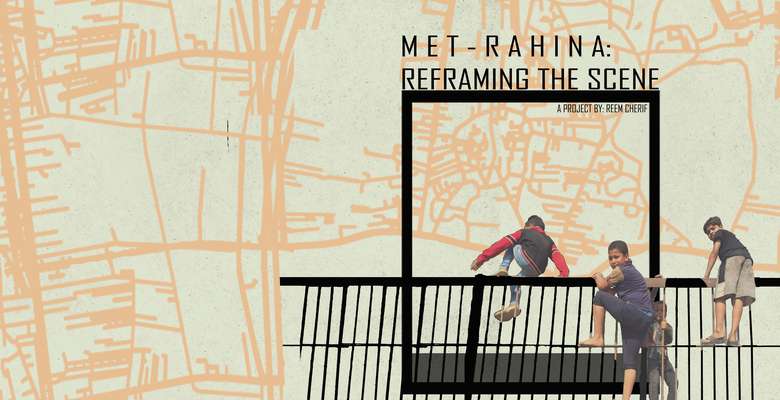
- Site-specific cases
Aside from the usual urban scene, this project proposes putting down the people into the frame, by helping them maintain a sustainable living with simple techniques. It examines how people can implement and manage solutions. Design of interventions are presented, yet the main concept is about how people are going to use and benefit from it, and at the next phase to manage it. After the first phase, they will be controlling the mechanism of food and water production as they are the ones who produce, distribute and consume. In last five decades, notable changes have occurred in the rural areas in Egypt, including the study area where people and spaces are subjected to marginalization from the state’s urban development plans. Hence, this project is filling the gap through observation of daily practices; ways of obtaining water and food, and investigating this process within the spatial context of streets and buildings. Then, it proposes sustainable intervention for domestic and public.
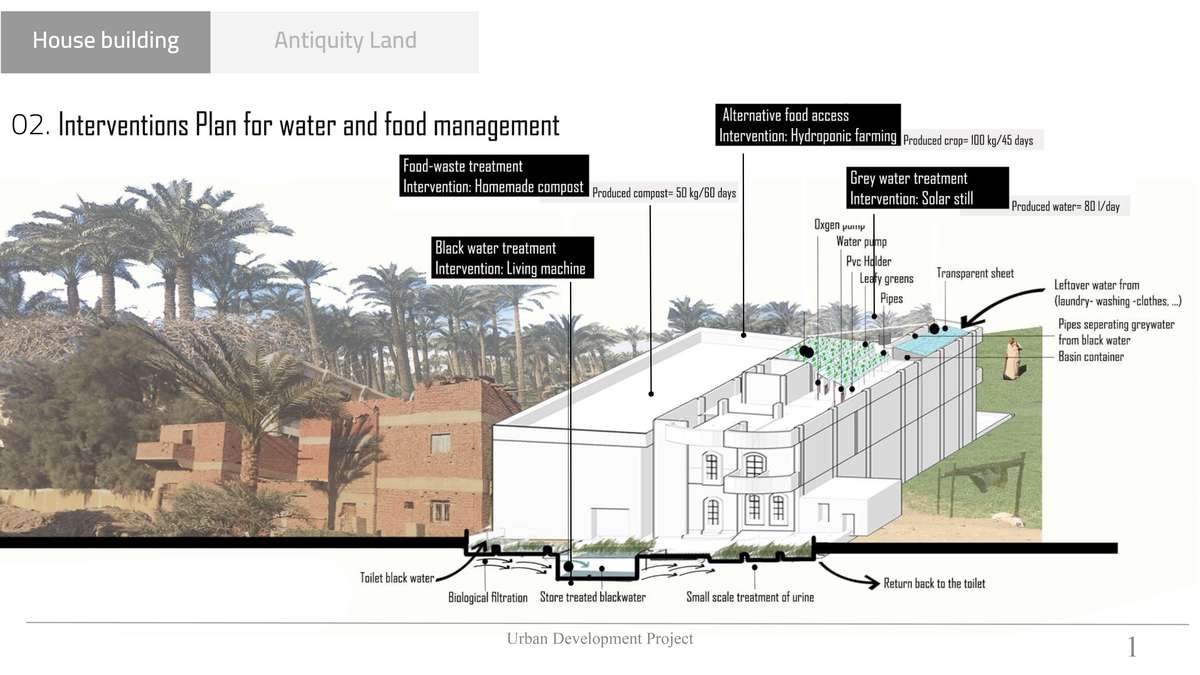
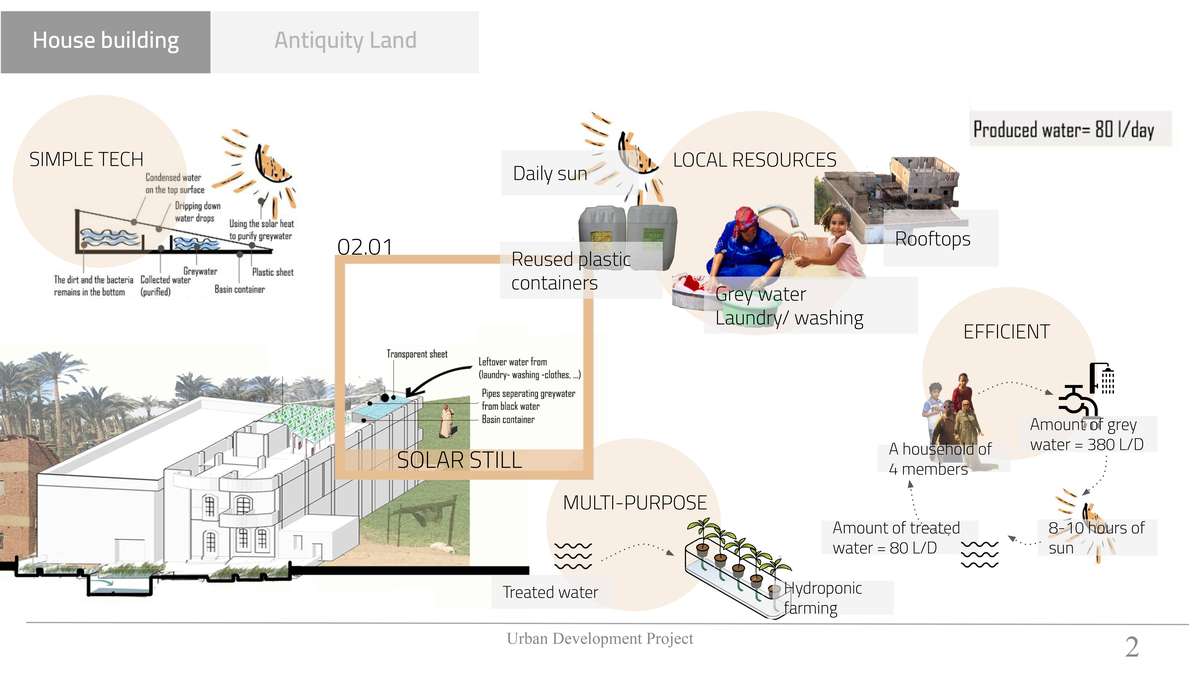
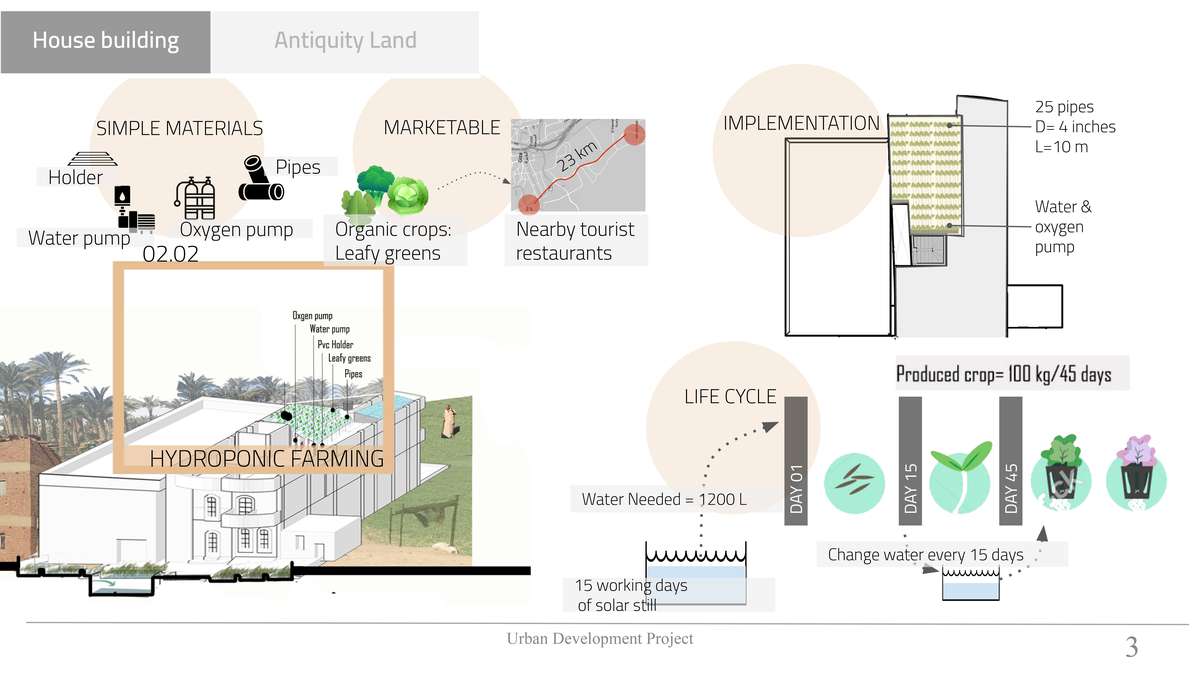
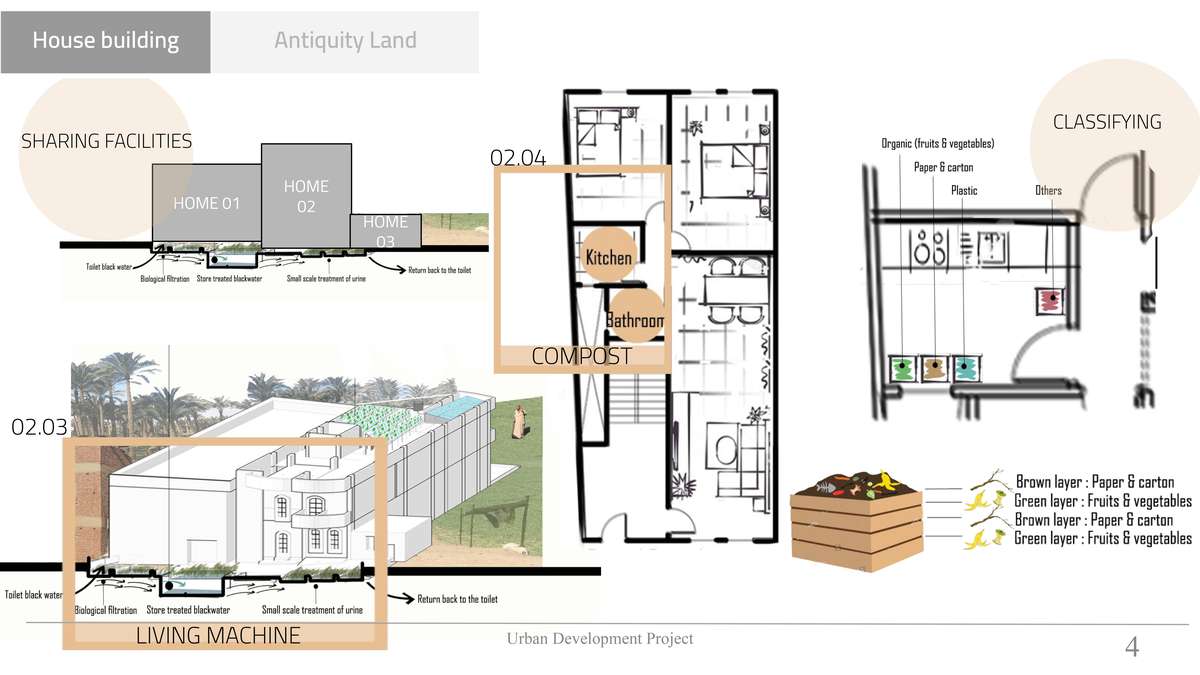
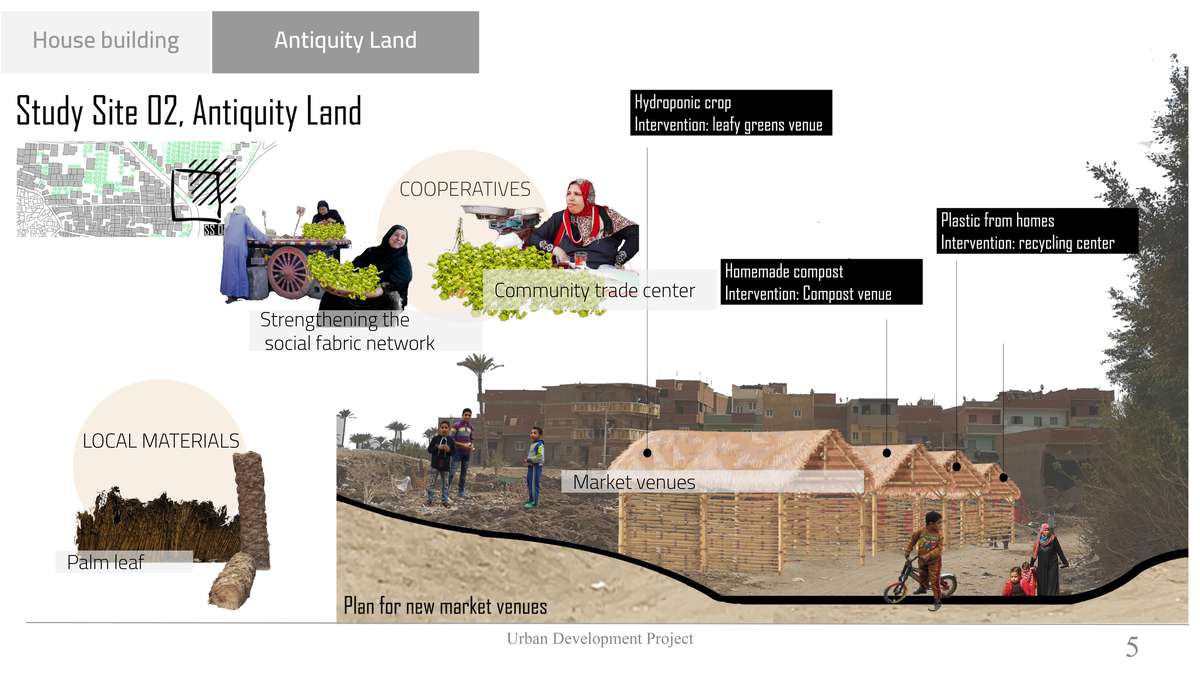
Met-Rahineh: Re-framing the scene
Met-Rahineh: Re-framing the scene

- Site-specific cases
Aside from the usual urban scene, this project proposes putting down the people into the frame, by helping them maintain a sustainable living with simple techniques. It examines how people can implement and manage solutions. Design of interventions are presented, yet the main concept is about how people are going to use and benefit from it, and at the next phase to manage it. After the first phase, they will be controlling the mechanism of food and water production as they are the ones who produce, distribute and consume. In last five decades, notable changes have occurred in the rural areas in Egypt, including the study area where people and spaces are subjected to marginalization from the state’s urban development plans. Hence, this project is filling the gap through observation of daily practices; ways of obtaining water and food, and investigating this process within the spatial context of streets and buildings. Then, it proposes sustainable intervention for domestic and public.
